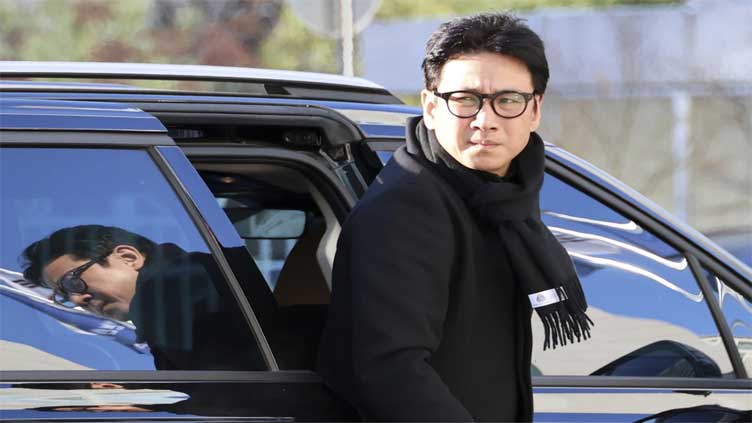South Korean actor Lee Sun-kyun of Oscar-winning film 'Parasite' is found dead

Entertainment
South Korean actor Lee Sun-kyun of Oscar-winning film ‘Parasite’ is found dead
SEOUL, South Korea (AP) — Lee Sun-Kyun, a popular South Korean actor best known for his role in the Oscar-winning movie “Parasite,” was found dead in a car in Seoul on Wednesday, authorities said, after weeks of an intense police investigation into his alleged drug use.
Police and emergency officers initially found Lee in what they believed was an unconscious state in the car parked on a street in northern Seoul. Emergency officers later confirmed he was dead, according to Seoul’s Seongbuk police station.
Police had been searching for Lee, 48, after receiving a report that he was missing.
They refused to provide further details including whether they had determined Lee killed himself. But South Korean media outlets including Yonhap news agency said that Lee’s family earlier Wednesday reported to police that he left home after leaving a message similar to a suicide note.
Lee appeared in “Parasite,” which won Oscars for best picture and three other categories in 2020. The class satire was the first non-English-language film to win best picture in the then-92-year history of the Academy Awards and was the first South Korean movie to win an Oscar. In the film, Lee plays the head of a wealthy family.
The film’s cast, including Lee, also won a Screen Actors Guild award for the best motion picture ensemble cast in 2020. He was nominated for best actor at the International Emmy Awards for his performance in the sci-fi thriller “Dr. Brain” last year, as well.
Even before “Parasite,” Lee had been a popular actor in South Korea for a long time. He rose to stardom for his role in a hit TV drama series, “Coffee Prince (2007),” and gained mainstream popularity with a series of hit TV dramas such as “Behind The White Tower (2007),” “Pasta (2010)” and “My Mister (2018).”
Lee had been under a police investigation into allegations that he used illegal drugs at the residence of a bar hostess. Lee insisted he was tricked into taking the drugs and that he did not know what he was taking, according to Yonhap. But the investigation prompted extensive tabloid coverage and unconfirmed online rumors about not only his alleged drug use but also his private life. Lee filed a suit against two people including the hostess, alleging they blackmailed him.
When he was first summoned for questioning at a police station in Incheon, a city near Seoul, in late October, he deeply bowed several times and apologized to his fans and family. “I feel sorry for my family members who are enduring too difficult pains at this moment. I again sincerely apologize to everyone,” he said.
Incheon police said Wednesday they would end their investigation of Lee’s drug use allegations but would continue to investigate the two people Lee had sued.
South Korea has strict anti-drug laws but has seen soaring drug-related offenses in recent years. Last week, the National Police Agency said it had detained about 17,150 people over alleged illegal drug manufacturing, smuggling, sales and uses this year — a record number for a single year.
South Korea has long had the highest suicide rate among developed countries. It has also experienced a string of celebrity suicides involving K-pop stars, prominent politicians and business executives.
Experts say malicious and abusive online comments and severe cyberbullying were blamed for many of the celebrity suicides.
“Lee faced some allegations but they haven’t been formally verified. But the media has been assertively reporting about Lee’s private life … and I think that’s something wrong,” said Kang Youn-gon, a media communication professor at Seoul’s Chung-Ang University.
Lee is survived by his actress wife Jeon Hye-jin and two sons.


